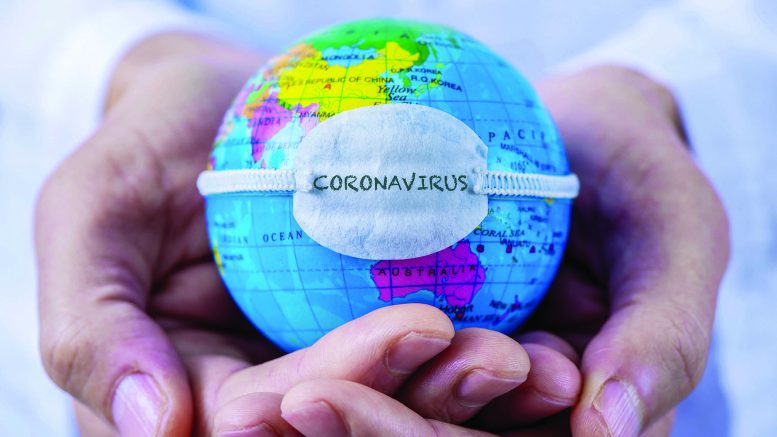The Corona virus pandemic has shaken the entire world and the situation seems to be worsening day by day! There are several short-term and long-term implications linked to the spread of COVID-19. However, one thing is certain that when the crisis ends, the world will never be the same again. It is impacting us in several ways and the extent of the damage will only get clear once it is over. However, the three fundamental ways in which the crisis is currently impacting us are:
Health implication: The highly contagious nature of the virus is leading to a massive surge in number of people who are getting infected. The fact that till now there is no cure for COVID-19 is, unfortunately, resulting in a significant loss of life. Given the speed with which the disease is spreading, the healthcare infrastructure is not geared to provide adequate medical cure to the massive number of very sick patients in this short span of time. Every government across the world has their hands full in trying to deal with this tragic and unprecedented situation. Let us hope that a cure is found sooner than later and that the measures taken by the government reduce the impact. A lot is being written about this and I am not a medical expert so we will not discuss this aspect in detail.
Economic implication: To be able to slow down the spread of the virus, governments across the world are having to lock down cities, states, and countries to enforce social distancing. No one knows for how long this lockdown will need to continue, but going by the pandemic’s geometrically increasing spread, it could be several weeks if not several months.
Let’s try and look at the situation from the lens of businesses, especially the ones which provide large scale employment – they are grappling with the ever-changing scenario. In the short run, they are looking to redraw their business continuity plans because nobody could have predicted or planned for the current scenario and trying to ensure that when their employees work from home/remotely, they are safe, productive, and are able to work as teams collaboratively.
The pandemic will ensure that for several businesses the future arrives much earlier than it would have arrived minus COVID-19. E.g., Social distancing and remote working may become the norm after a few months. Take for example, the learning and development industry. Despite the existence of robust technological solutions, it was moving slowly yet steadily to an e-learning mode. For several well-regarded courses and critical skill enhancement trainings, physical Instructor Led Training (ILT) is still the preferred mode. ILT is usually conducted in a conference room, or a training room where one or more instructors impart the training to a group of learners, face to face.
However, in the last few weeks, several Learning & Development (L&D) companies have shifted gears and moved their entire offerings to vILT (Virtual Instructor Led Trainings). Few progressive schools have also announced that they will move to remote teaching soon. Several other players in the L&D industry are expected to follow suit.
Emotional implication: Social distancing for extended periods can lead to feeling of isolation. This feeling coupled with the anxiety that either us or our loved ones can contract the disease, can lead to depression and panic attacks. Currently governments are correctly putting most of their energies and focus on minimising the health impact and to some extent the economic impact. However, there is a need to also act on the emotional aspect.
Only, by supporting each other can we come out of this crisis, as everyone requires a helping hand. Human Resource departments are working overtime to plan smooth transitions to remote working with their business teams. But, there is also a requirement to constantly communicate with the employees and keep them mentally healthy and engaged. Most large organisations are likely to ensure that the channel of communication is kept open and adequate information and tips are shared with their employees but for small and medium businesses, this area may not get adequate focus as HR and Internal Communication teams are not as strong or as evolved as in large organisations. Start-ups which were used to a super-fast pace of work may also need to learn to slow down and take it easy.
There is a need to get regular and frequent feedback from the employees, who are now physically away from each other. The tone and tenor of the communication has to consider the added anxiety levels (amplified by the concern for the well-being of the individuals as well as their families). Each business manager / team head will need to take lead on this aspect and provide the support that their team members require. Given that they themselves are anxious, the task becomes all the more difficult. Hence, even the managers will require counselling and coaching to deal with the stress.
In the immediate term, businesses are trying to cope by moving to remote working. However, as the world economy will be in a slowdown mode for some time, they may need to redraw their business plans. Also, the way several industries conduct businesses today may change – some will get away with minor tweaks and some may require substantial transformation. Many new business models may also emerge. Life as we know it today may never be the same! As someone rightly said, “You cannot step into the same river twice.”
The views and opinions published here belong to the author and do not necessarily reflect the views and opinions of the publisher.



After the crisis, people will be devastated to a great extent. The world will try to deal sternly with China, led by USA. But China will not bend.